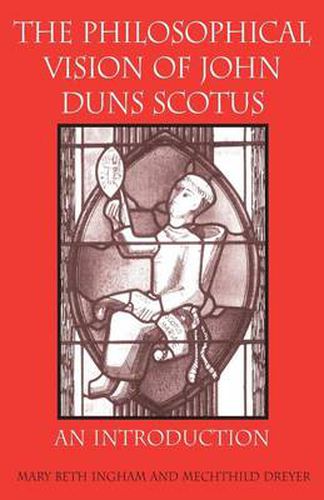Readings Newsletter
Become a Readings Member to make your shopping experience even easier.
Sign in or sign up for free!
You’re not far away from qualifying for FREE standard shipping within Australia
You’ve qualified for FREE standard shipping within Australia
The cart is loading…






This is an introduction to the philosophy of the 13th century Franciscan John Duns Scotus. The text brings together key insights of Scotus’s theory of cognition, metaphysics and ethics in a comprehensive and unified manner. The authors use critical texts and the most recent scholarship on Scotus to introdce the inticrate vision of the
Subtle Doctor
to a wide audience. This volume offers a point of entry into the world of medieval philosophy and its connection to questions belonging to natural theology: the existence of God, divine freedom and perfection. It presents historical information on Scotus himself, but additionally on the philosophical context in which he taught. The authors explicate his thought in light of the dominnt questions of the late 13th century. The integrative and comprehensive presentation of the essential elements of Scotus’s philosophical vision makes this book a useful resource. Basic concepts are explained for the non-specialist, while discussions of Scotus’s conceptions should be of interest to those already familiar with his work.
$9.00 standard shipping within Australia
FREE standard shipping within Australia for orders over $100.00
Express & International shipping calculated at checkout
This is an introduction to the philosophy of the 13th century Franciscan John Duns Scotus. The text brings together key insights of Scotus’s theory of cognition, metaphysics and ethics in a comprehensive and unified manner. The authors use critical texts and the most recent scholarship on Scotus to introdce the inticrate vision of the
Subtle Doctor
to a wide audience. This volume offers a point of entry into the world of medieval philosophy and its connection to questions belonging to natural theology: the existence of God, divine freedom and perfection. It presents historical information on Scotus himself, but additionally on the philosophical context in which he taught. The authors explicate his thought in light of the dominnt questions of the late 13th century. The integrative and comprehensive presentation of the essential elements of Scotus’s philosophical vision makes this book a useful resource. Basic concepts are explained for the non-specialist, while discussions of Scotus’s conceptions should be of interest to those already familiar with his work.